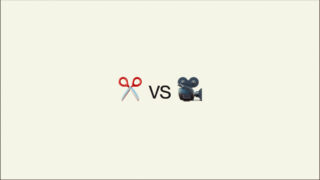
tag, you're it!
the protagonist, the antagonist and the staggering moral compass.
“This town ain’t big enough for the two of us, par’ner 🤠🔫.” “Mere paas Maa hai 🙁😢.” “Kitne aadmi the…🧔🙌”. “It’s alive!! 🧌🧑⚕️” “In their last moments, people show you who they really are…🤡🔪” “Let’s flip a coin. 🧑🏻💼🧯”
Some of our favorite people to hate have been the anti heroes from movies – people that have made us feel better about our existence and flaws, and sometimes our parents would scare us with their sudden arrival if we were being cheeky enough. The role of villains was to make an entertaining story, to create drama and to give the hero a motive for character development – people went to the movies expecting a story – and nothing more. Such simpletons.
Over the decades, a phenomenal shift happened. From the existence of villains, we came to the existence of villains who had a change of heart.
From that, we have now moved on to another category altogether – the existence of an antagonist as the very hero, a backstory that validates their current behavior, and surprisingly, a strange empathy towards people who have committed heinous acts through the narrative.
So, in some sense, our hero is our villain is our hero.
This piece in no way is meant to judge this scenario or show any kind of preference. It is merely to study and introspect a shift that has taken place before our very eyes and is worth a mention.
Let’s have a look at some of the films (without any spoilers) this decade where the moral compass of the protagonist plays slip and slide, and our emotions are played with as well. 🎲
The Wolf of Wall Street 🐺:
A real womanizing criminal whose life was glorified through dark humor, we often found ourselves laughing with Jordan and enjoying his witty comebacks rather than looking at him with disgust. Although his acts had little room for redemption, the movie narrative made us look at him through the stained glass of ‘everyone has flaws’, and, dare we say, sometimes even envy him to do as he wills.
Oppenheimer 🎩:
If guilty obsession had a movie, this’ll be it. A flirtatious adulterer, a person who envisions the end of the world, the father of the Atomic Bomb, was seen and celebrated and glorified in this movie – as the audience was moved to tears when they felt the internal struggle that Oppenheimer was shown to face. The choice between enabling catastrophe, blowing up thousands of innocent civilians with predictable years of health repercussions – and to not do that shouldn’t be that hard, in retrospect.
The Beekeeper 🐝:
A clear example of when shown enough motive, people will forgive – no one really knows how the simple beekeeper turns into a secretive fugitive above the law. Even through the bloodshed, we were somehow rooting for Adam and hoping he gets his vengeance.
Disney’s Cruella 🐕:
We never thought that we could even feel anything but hate for a woman who wanted to make a coat out of cute dalmatian pups, but (sigh)…. This movie was an origin story we never really knew we needed, just like the infamous coat.
Kho Gaye Hum Kaha 👶:
A depiction of troubled times where connectivity is at an all time high, right along with loneliness – all the protagonists that are seen in this film are deeply flawed. However, Gen Z has found themselves relating hard to each of them and their questionable choices.
Animal 👺:
Right up there in the zone with Kabir Singh, this movie was worth mentioning in this list simply because it gained profound popularity online and beyond. Some loved it, many hated it – everyone talked about it. The protagonist in this film flamboyantly showcased oppression masked under masculinity, a deep unresolved obsession with his father masked under familial love and adultery masked under sacrifice for the larger good, and yet had his character celebrated, even looked up to (??).
These were just a few examples of the changing era of the flawed protagonist. As we root for our favorite anti-heroes, we also realize that our love for them is because we also want to accept and love our own flaws. After all, what are films if not an extension and exaggeration of our own imperfectly perfect human existence.
Which movie would you add to the list? We would love to know.
share



